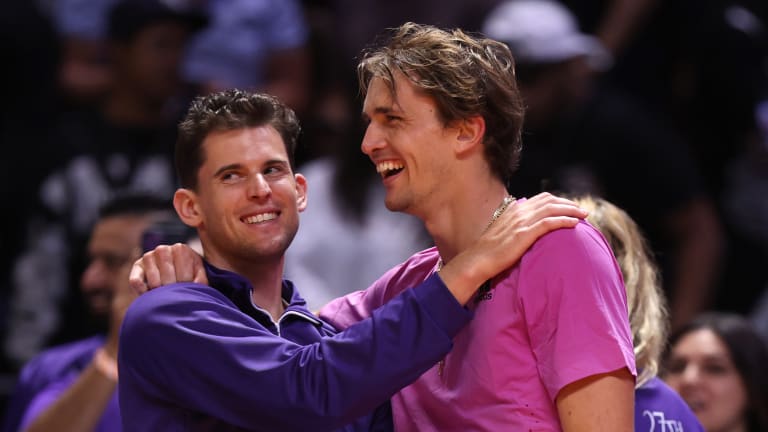World Tennis League
Alexander Zverev beats Novak Djokovic to seal World Tennis League win for Team Hawks
By Dec 20, 2022World Tennis League
Paula Badosa pairs “soulmates” Aryna Sabalenka, Stefanos Tsitsipas for World Tennis League wins
Dec 21, 2023World Tennis League
“Not taken away by success”: Novak Djokovic commends Lionel Messi's great example
By Dec 21, 2022World Tennis League
Iga Swiatek keeps 2022 vibes going in World Tennis League debut against Caroline Garcia
By Dec 19, 2022Ranking Reaction
Elina Svitolina returns to Top 10 on WTA rankings after sizzling start to 2026 season
By Feb 02, 2026Ranking Reaction
Janice Tjen becomes first Indonesian woman to be ranked in the Top 50 this century
By Feb 02, 2026Australian Open
“I just got mature”: Carlos Alcaraz used his full arsenal to beat Novak Djokovic and complete the career Slam
By Feb 01, 2026Australian Open
Novak Djokovic may finally have run out of house money
By Feb 01, 2026Australian Open
AO champ Carlos Alcaraz "happy to prove all the people were wrong" after triumphing in first event without Ferrero
By Feb 01, 2026Pop Culture
Australian Open famous faces: Liam Hemsworth, Rafael Nadal, Chloë Grace Moretz and more
By Feb 01, 2026Alexander Zverev beats Novak Djokovic to seal World Tennis League win for Team Hawks
The German's 6-3, 6-4 effort solidified a 35-27 victory for his squad over the Falcons Tuesday in Dubai.
Published Dec 20, 2022
Advertising

Zverev celebrates with teammate Thiem afterwards. Earlier, fellow Hawks player Elena Rybakina rallied past Aryna Sabalenka.
© 2022 Getty Images